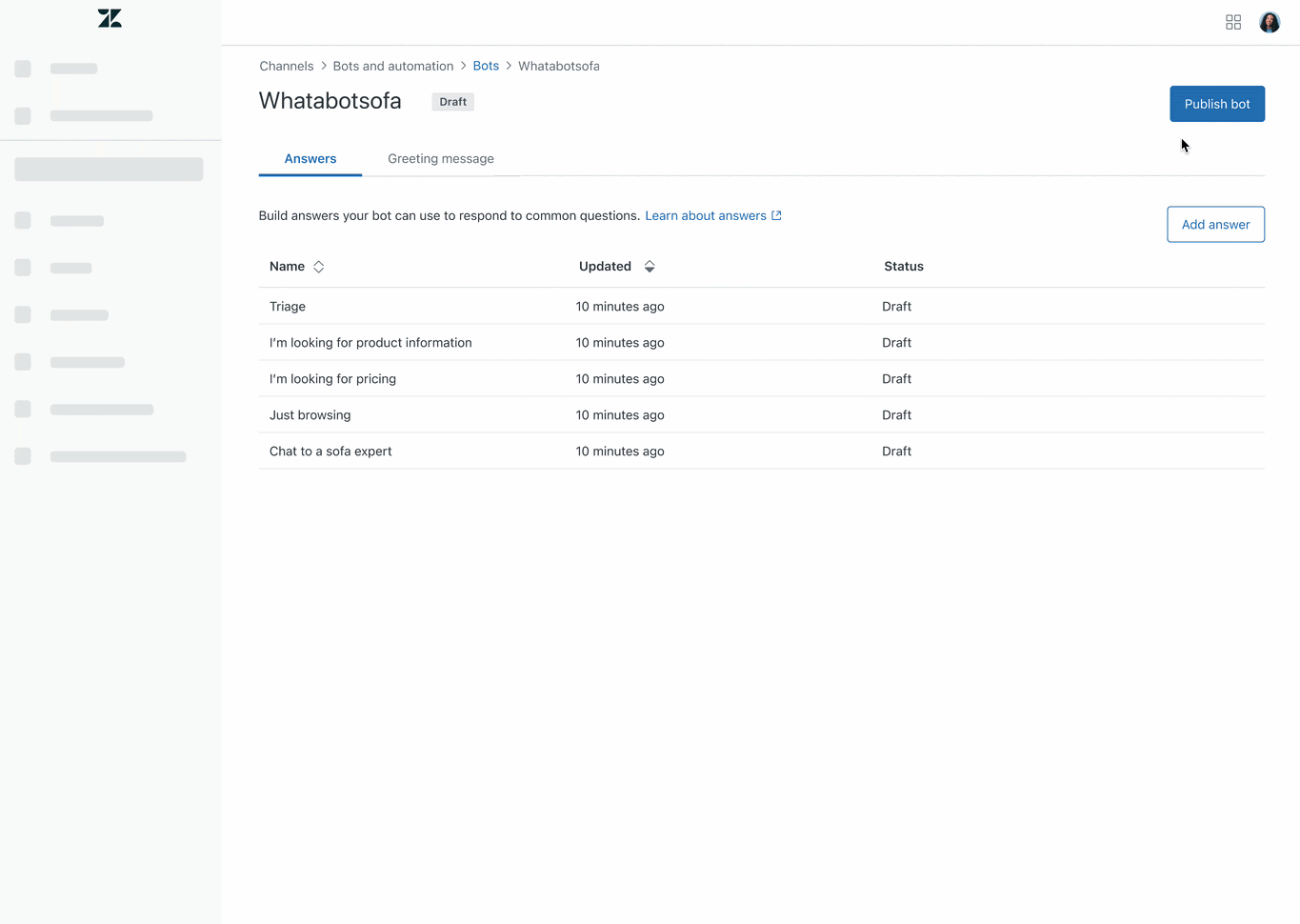
Getty Images/iStockphoto
Zendesk enhances CRM, low-code customer service chatbots
Zendesk's Answer Bot moves past the knowledge base and gets a low-code interface so that business users can orchestrate automated conversations.
Zendesk today released new features for its customer service and CRM platforms, including a low-code update to its flagship Answer Bot that drives its help desk and customer service workflows.
The customer service chatbot update comes in a new integration with Flow Builder, Zendesk's low-code, drag-and-drop automation tool. Here, Zendesk users who aren't programmers can automate conversations to orchestrate sales and service conversations, much like they can with Salesforce Flow and Microsoft Power Automate (formerly Flow).
When Answer Bot launched in 2017, it was a zero-configuration tool that used AI models based on 12 million customer interactions to organize knowledge base data into answers to common questions from Zendesk users. Earlier Flow Builder integrations enabled the Answer Bot to route support tickets to the right agents through multiple-choice questions, in addition to knowledge base searches and relevant content recommendations.
The latest Flow Builder integration enables the Answer Bot to solve common issues and make recommendations, not just point customers to articles or escalate their problem to human agents.
"The way that they want to use these flows is to drive conversational engagement, for marketing, for sales, for service -- it's more than just e-commerce," said Kate Leggett, an analyst at Forrester Research. "Zendesk is known as being pretty sophisticated with knowledge bases, so it could more than catch them up [to the competition]."
Answer Bot pricing is based on the customer's plan and number of Answer Bot resolutions per billing month.

Slack, Teams integrations deepen
In the latest release, Zendesk chats integrate with Slack and Microsoft Teams. While many company departments, such as HR, use Zendesk's ticketing system in their workflows, employees are on Slack and Teams, said Mike Gozzo, senior vice president of product at Zendesk.
Rather than make employees move out of those chat environments and launch a Zendesk ticket or email, these conversations can take place in Slack and Teams, and HR can record them in their usual Zendesk workflows.
This feature, Gozzo said, arose from the shift to remote work during the pandemic.
"We've seen an explosion of team chat, and more and more people are using this," Gozzo said. "We think it's a really, really important place for businesses to be opening up and engaging with their employees."
Zendesk also introduced tools for managing employee experience in HR, finance, operations and IT departments to enable workflows for employee onboarding, dispatching and training.
CRM enhancements also added
Zendesk added features to its CRM package, including sales reps' dashboards for leads, deals and calls, with more planned for the coming months. Also added were the first of many features to come that enable what the company terms "conversational CRM," which combines sales and service customer engagements to both manage the customer relationship and sell.
"We're trying to capitalize on this evolution of customer engagement, whether it's in service or a sales perspective," Gozzo said. "You might have concepts like tickets and other workflow elements there to help organize your processes internally. We're trying to hide as much of this as possible from a business's customers."
New CRM features include automated messaging that extends to messaging apps, including WhatsApp and Facebook. Analytics tools examine conversational data to determine staffing for agents on different channels that a Zendesk user's customers most frequently use to contact the company.
Later this year, Zendesk plans to add a WhatsApp integration to Zendesk Sell that captures interactions for the record in Zendesk so that they can be managed, tracked and reported by sales teams.
The new features were released in conjunction with the Zendesk Relate virtual user conference.
Zendesk pricing ranges from $49 per agent, per month for the Suite Team plan to $215 and up per agent, per month for Enterprise plans.
Don Fluckinger covers enterprise content management, CRM, marketing automation, e-commerce, customer service and enabling technologies for TechTarget.






